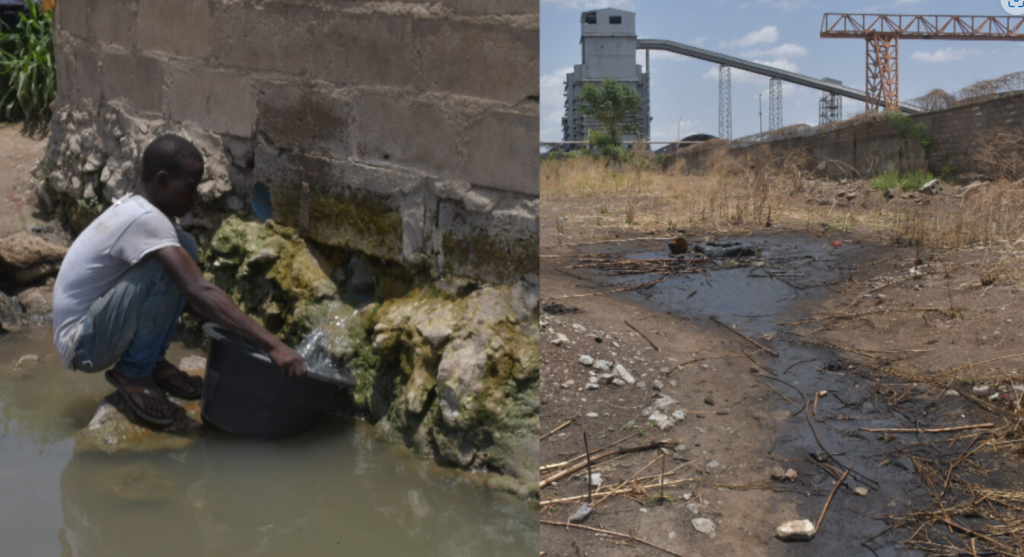
The heated afternoon and sweltering temperature saw some residents of the Mbayion district in Gboko Local Government Area (LGA) of Benue State scampering to the Dangote Cement’s trench which overflows wastewater into their streams.
A few steps away from the trench, where women, children, and young adults fetched the water, lies an open pit that spills black oil into the soil, killing all the plants in the surrounding area.
On some occasions, aquatic creatures such as fish and frogs were found dead, floating on top of the brackish water, apparently as a result of the pollution, several sources in the district told The ICIR.
After filling four gallons of 25 litres each, a 23-year-old resident, Terver Sesugh, who should ordinarily be happy for getting water, forlornly declared that the usage of the water would rather add more to his problems.
“This water itches my body. The only clean water around here is inside the Dangote Cement factory, but we don’t have access to it,” Sesugh remarked.
He added that only people who worked at the factory or had business to transact inside were allowed into the premises.
A visit to the waterside two days later, on April 6, led to another encounter with 28-year-old James Terungwa who collaborated that in addition to itching of the body, he suffered blurriness after bathing with the water.
Even though they know that the water is unhealthy for use, Mbayion residents are forced to utilise the only option (wastewater) available.
With seven council wards, Mbayion district has a population of 361,325, according to Nigeria’s last population census conducted in 2006, which The ICIR obtained from the Gboko office of the National Population Commission (NPC).
Growing water crisis
Orver Yongu, the national president of the Yion Development Association (YIDA), said over five hundred households are affected by the water crisis. YIDA is the community’s socio-cultural group at the forefront of the struggle for environmental remediation.
An environmental activist, Zack Uchir, said it was unfathomable that human beings were forced because of their precarious circumstances to use wastewater, “but this is where we find ourselves.”
Uchir, who claimed to have worked with the Dangote Cement factory as a casual staff for four years, said he witnessed first-hand how pollutants were discharged into surrounding streams without treatment.
“Once polluted with the black oil, the streams can no longer be used for domestic or even irrigation purposes. Our plants wither away once they have any contact with the water,” he said.
Water harmful on human body – NAFDAC, WaterAid Nigeria
The ICIR visited three local clinics to investigate common ailments among residents. Two health workers confirmed that skin problems, caused by the wastewater, were the leading ailments.
Another clinic declined to disclose information for fear of victimisation, despite the reporter’s assurance of anonymity. A health worker at one of the clinics stated: “Almost all the patients with skin infections have come in contact with the wastewater.
“Other ailments such as typhoid and high blood pressure are also common here. We usually prescribe some antibiotics for treatment, but the people need to stop using that water,” she said.
To assess the pollution level, the reporter submitted the water sample to the National Agency for Food and Drug Administration and Control (NAFDAC) in Abuja for laboratory analysis.
[give_form id="20698"]

